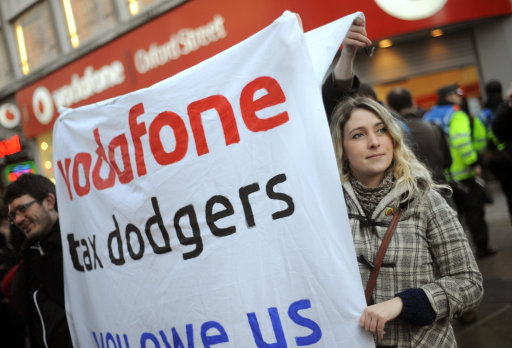Even the CBI doesn’t understand corporate taxation
 THE CBI does not understand corporate taxation:
THE CBI does not understand corporate taxation:
The business group dismissed accusations that large companies enjoy a cosy relationship with HM Revenue & Customs, and said public anger over tax avoidance and evasion stems from “misunderstanding” of the complexities of the tax system.
John Cridland, the CBI’s director general, said: “Business is paying its fair share of tax – we are much misunderstood. Today is the beginning of the fightback to say we’re paying the right amount of tax and the way to get the economy moving is lower rates of tax which will lead to more tax being paid.”
The point being that business cannot be paying the “right” amount of tax because business never pays tax, not a red penny, ever.
This is one of those things that economists have known since it was first pointed out in 1899 (Edwin Seligman) but have never really managed to get the public or politicians to understand.
All taxes, any tax, requires that the wallet of some live human being gets lighter. A company is simply a legal fiction, to allow it to sue and be sued, not a real live human being. Therefore it cannot be the company that pays the tax it must be some or other human being.
The study of which human being is the study of tax incidence. And these various taxes can pop up in surprising places. Employers’ national insurance for example, something we generally think is paid by the company, is almost all really paid by the employee in the form of lower wages. VAT I think we know is paid by the consumer. The biggie though is corporation tax.
You can make different assumptions and get to different proportions but the general agreement is that it’s partly paid by the shareholders in the form of lower returns (dividends or capital gains) and partly by the workers in the form of lower wages. It absolutely isn’t paid by the company even though they hand over the cheque. It’s some mixture of shareholders and investors and the argument is over in what proportion this happens.
The determinant of what proportion is how mobile is capital compared with labour? The more mobile capital is the more it is the workers in lower wages that pays it. And there are reasonable estimate that show that in the UK at present the portion paid by the workers is over 50%.
So it’s not really a tax on the company at all: it’s just another income tax.
Posted: 20th, April 2012 | In: Money 0 Comments | TrackBack | Permalink


